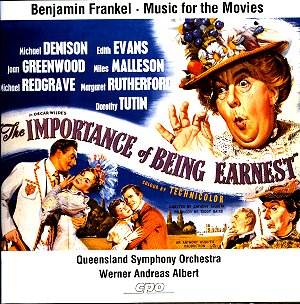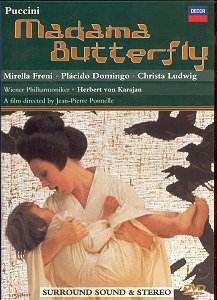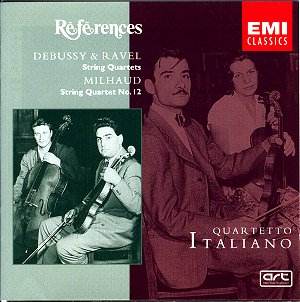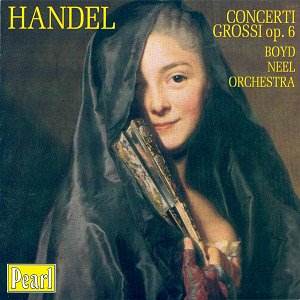 Composer: Benjamin Frankel
Composer: Benjamin Frankel
Works: The Importance of Being Earnest (1952), The Curse of the Werewolf: Pastoral (1961), The Night of the Iguana (1964), Trottie True (1949), The Years Between: Lullaby (1946), Footsteps in the Fog (1955)
Performers: Queensland Symphony Orchestra, Werner Andreas Albert (conductor)
Recording: ABC Studio 420, Brisbane, October-November 2000
Label: CPO
Benjamin Frankel, a figure often overshadowed in the pantheon of 20th-century composers, emerges with renewed vigor in this second volume of his film music, showcasing a range of stylistic evolutions that reflect both his innovative spirit and the cinematic trends of his time. This collection not only exemplifies Frankel’s adeptness at scoring for film but also serves as a testament to his ability to navigate between tonal clarity and modernist complexities. The selections here are anchored in the post-war British cinematic landscape, where Frankel’s eclectic style offers a rich tapestry that is at once accessible and intellectually stimulating.
The recording opens with the delightful score from The Importance of Being Earnest, characterized by its melodic wit and charm—a nod to Offenbach that sets the tone for the album. The orchestration utilized by the Queensland Symphony Orchestra, under the direction of Werner Andreas Albert, is refreshingly crisp, allowing the intricate woodwind dialogues and buoyant strings to clearly resonate. The arrangement, whose origins remain somewhat nebulous, captures the essence of a light overture, inviting the listener into Frankel’s playful musical world.
In stark contrast, the Pastoral from The Curse of the Werewolf emerges as a poignant example of Frankel’s nuanced approach to film scoring. This piece stands out as an oasis of tonality amidst a predominantly atonal score, revealing Frankel’s capacity for lyrical expression. Its lush textures echo the pastoral traditions of Honegger, yet it remains firmly rooted in the chilling atmosphere of the film. The orchestra manages to convey both beauty and unease, a testament to Frankel’s mastery over thematic development and orchestral color.
The Night of the Iguana showcases Frankel at his most sophisticated, where he marries dramatic tension with lyrical interludes. The score’s darker hues are masterfully rendered, with sparse orchestrations that evoke the profound psychological undercurrents of Tennessee Williams’ narrative. Particularly striking is the vignette Mexican Washer Women, which introduces a much-needed levity amidst the pervasive tension—a clever juxtaposition that underscores Frankel’s adeptness in character portrayal through music. This piece also reflects the meticulous attention to orchestration, where the clarity of the strings and the earthy timbre of the brass serve to heighten emotional impact.
The lighter fare of Trottie True contrasts sharply with the more serious works, yet it is infused with the same joyous spirit that permeates The Importance of Being Earnest. The infectious melodies, such as the Gaiety Galop, are delivered with an effervescent buoyancy that is hard to resist. The orchestral execution here is particularly commendable; the ensemble’s cohesive sound and rhythmic vitality bring Frankel’s whimsical motifs to life, showcasing the conductor’s understanding of the score’s intrinsic humor.
Sound quality in this recording is exemplary, capturing the nuances of Frankel’s complex orchestrations with remarkable fidelity. The engineering allows for a clear delineation of the orchestral textures, making each instrumental contribution palpable and enhancing the overall listening experience. The clarity in the recording serves to highlight the intricacies of Frankel’s writing, revealing layers of detail that might otherwise be obscured in less adept productions.
CPO has rendered a significant service to the preservation and promotion of Frankel’s music with this release. It stands as a worthy follow-up to their earlier publication of The Battle of the Bulge, showcasing a breadth of works that underline Frankel’s versatile compositional voice. The album not only appeals to film music aficionados but also invites a broader audience to engage with Frankel’s rich and varied output.
This collection ultimately reaffirms Benjamin Frankel’s place in the film music canon. Each score is a vivid representation of his evolving style, marked by both sophistication and accessibility. The performances by the Queensland Symphony Orchestra, guided by Albert’s deft conducting, breathe life into these scores, making for a compelling listening experience that transcends the confines of film music and enters the realm of concert hall repertoire.



